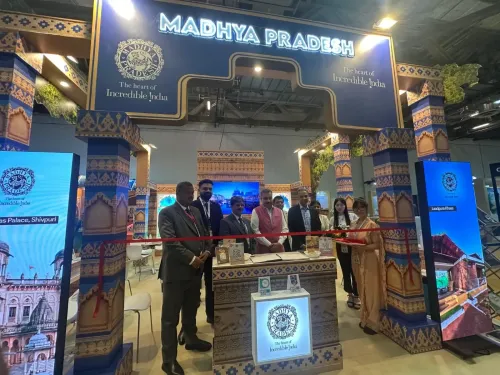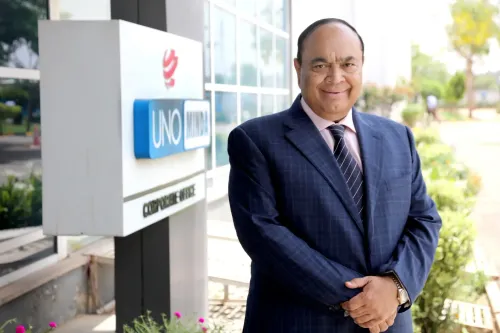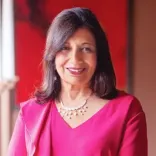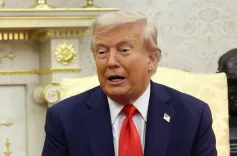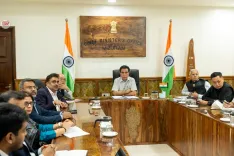How is India Supporting Global Financial Architecture Reforms?
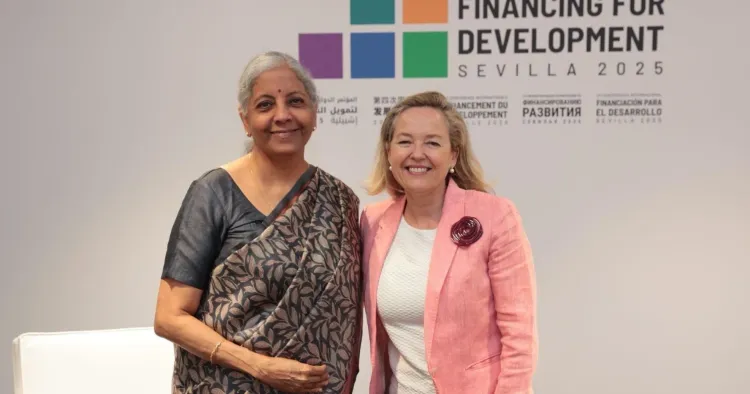
Synopsis
Key Takeaways
- India advocates reforming global financial architecture.
- Focus on Multilateral Development Banks for enhanced inclusivity.
- India's tax reforms have increased revenue.
- Commitment to South-South Cooperation is emphasized.
- Climate finance must be enhanced for vulnerable countries.
Seville (Spain), July 2 (NationPress) India advocates for reforms within the global financial architecture to enhance inclusivity and equity. This includes reforms for Multilateral Development Banks (MDB) and more equitable credit rating systems, as emphasized by Finance Minister Nirmala Sitharaman.
She asserted that MDB lending must align with long-term developmental goals, supported by robust monitoring frameworks to ensure appropriate use of funds during her address at the third plenary meeting of the 4th International Conference on Financing for Development (FFD4), organized by the United Nations.
“We advocate for international collaboration to modernize tax systems and curb illicit financial flows. India’s extensive tax reforms and the digital transformation of tax administration have resulted in increased revenue and reduced compliance costs,” she stated at the gathering.
FM Sitharaman highlighted that optimal regulation encourages both innovation and stability.
“The Indian financial system enhances inclusivity by providing easier access to credit and lower compliance costs, particularly for Micro, Small, and Medium Enterprises (MSMEs). We have cultivated a vibrant ecosystem for start-ups and Public-Private Partnerships (PPPs) in infrastructure,” she emphasized.
India has consistently placed its citizens at the core of its developmental strategy.
“Through focused policy interventions, we have lifted 250 million individuals out of multidimensional poverty and empowered communities via inclusive Digital Public Infrastructure (DPI). However, for sustainable global growth, national efforts need to be supported by a conducive international environment,” she pointed out.
FM Sitharaman reiterated India's commitment to South-South and Triangular Cooperation.
“We support the call for reversing the decline in Official Development Assistance (ODA) and urge developed nations to enhance climate finance that is predictable, accessible, and concessional, especially for adaptation in vulnerable countries. Embracing the spirit of India's civilizational ethos - 'Vasudhaiva Kutumbakam' or ‘The World is One Family’ - we must unite to effect meaningful change that benefits everyone,” she added.
She also had a meeting with Nadia Calvino, President of the European Investment Bank Group, on the sidelines of the FFD4 meetings.
During their discussions, they addressed various topics, including the EIB’s expanding portfolio in India, which includes seven metro projects and one urban rail project, while diversifying into other sectors like water and sanitation.
Recognizing India's strengths in digitalization and its contribution to promoting economic growth and inclusivity, FM Sitharaman and Calvino explored potential partnerships in third countries in this and other domains.
Calvino expressed enthusiasm for further strengthening the partnership between the EIB and India.

